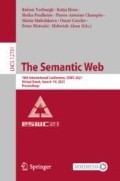Abstract
This paper presents a formal knowledge organization system (KOS) to represent the United Nations Sustainable Development Goals (SDGs). The SDGs are a set of objectives adopted by all United Nations member states in 2015 to achieve a better and sustainable future. The developed KOS consists of an ontology that models the core elements of the Global SDG indicator framework, which currently includes 17 Goals, 169 Targets and 231 unique indicators, as well as more than 450 related statistical data series maintained by the global statistical community to monitor progress towards the SDGs, and of a dataset containing these elements. In addition to formalizing and establishing unique identifiers for the components of the SDGs and their indicator framework, the ontology includes mappings of each goal, target, indicator and data series to relevant terms and subjects in the United Nations Bibliographic Information System (UNBIS) and the EuroVoc vocabularies, thus facilitating multilingual semantic search and content linking.
Access this chapter
Tax calculation will be finalised at checkout
Purchases are for personal use only
Notes
- 1.
This global SDG indicator framework is annually refined and subject to periodic comprehensive reviews by the UN Statistical Commission, which is the inter-governmental body where Chief Statisticians from member states oversee international statistical activities and the development and implementation of statistical standards.
- 2.
- 3.
- 4.
- 5.
This includes terms such as ‘access’, which occurs 31 times in the SDG Global Indicator Framework.
- 6.
- 7.
- 8.
The group includes representatives from UNSD and other UN offices, including from UN DESA and the UN Library, as well as experts involved in the development of the UN Semantic Interoperability Framework adopted by the High-Level Committee on Management (HLCM) of the CEB.
- 9.
See https://www.undocs.org/en/E/CN.3/2020/37 - United Nations Statistical Commission, Decision 51/102 (g) on Data and indicators for the 2030 Agenda for Sustainable Development.
- 10.
See https://unstats.un.org/sdgs/indicators/indicators-list for the updated list of indicators that repeat under two or three targets.
- 11.
List is regularly updated and available at https://www.undocs.org/en/E/CN.3/2020/37 .
- 12.
- 13.
- 14.
- 15.
- 16.
- 17.
- 18.
- 19.
- 20.
e.g. http://metadata.un.org/sdg/static/sdgs-ontology.ttl for Turtle format.
- 21.
- 22.
- 23.
- 24.
- 25.
- 26.
- 27.
- 28.
http://linkedsdg.apps.officialstatistics.org/, source code for the application available at: https://github.com/UNGlobalPlatform/linkedsdg.
- 29.
See https://sustainabledevelopment.un.org/ for VNR documents.
- 30.
- 31.
- 32.
- 33.
References
Alexander, K., Cyganiak, R., Hausenblas, M., Zhao, J.: Describing linked datasets - on the design and usage of void, the vocabulary of interlinked datasets. In: Linked Data on the Web (LDOW) Workshop, in Conjunction with 18th International World Wide Web Conference (2009)
Bird, S., Simons, G.: Extending Dublin Core metadata to support the description and discovery of language resources. Comput. Humanit. 37(4), 375–388 (2003)
Buttigieg, P.L., Jensen, M., Walls, R.L., Mungall, C.J.: Environmental semantics for sustainable development in an interconnected biosphere. In: ICBO/BioCreative (2016)
Erxleben, F., Günther, M., Krötzsch, M., Mendez, J., Vrandečić, D.: Introducing Wikidata to the linked data Web. In: Mika, P., et al. (eds.) ISWC 2014. LNCS, vol. 8796, pp. 50–65. Springer, Cham (2014). https://doi.org/10.1007/978-3-319-11964-9_4
Fiorelli, M., Stellato, A., McCrae, J.P., Cimiano, P., Pazienza, M.T.: LIME: the metadata module for OntoLex. In: Gandon, F., Sabou, M., Sack, H., d’Amato, C., Cudré-Mauroux, P., Zimmermann, A. (eds.) ESWC 2015. LNCS, vol. 9088, pp. 321–336. Springer, Cham (2015). https://doi.org/10.1007/978-3-319-18818-8_20
Gandon, F., Sabou, M., Sack, H., d’Amato, C., Cudré-Mauroux, P., Zimmermann, A.: The semantic web. latest advances and new domains. In: ESWC 2015-European Semantic Web Conference, vol. 9088, p. 830. Springer (2015). https://doi.org/10.1007/978-3-319-18818-8
McCrae, J.P., Bosque-Gil, J., Gracia, J., Buitelaar, P., Cimiano, P.: The OntoLex-Lemon model: development and applications. In: Proceedings of eLex 2017 Conference, pp. 19–21 (2017)
Miles, A., Matthews, B., Wilson, M., Brickley, D.: SKOS Core: simple knowledge organisation for the Web. In: International Conference on Dublin Core and Metadata Applications, pp. 3–10 (2005)
Stellato, A., Fiorelli, M., Turbati, A., Lorenzetti, T., van Gemert, W., Dechandon, D., Laaboudi-Spoiden, C., Gerencsér, A., Waniart, A., Costetchib, E., Keizer, J.: VocBench 3: a collaborative semantic web editor for ontologies, thesauri and lexicons. Semantic Web 11(5), 855–881 (2020)
Dag Hammarskjold Library of United Nations, N.Y.: UNBIS Thesaurus, English Edition http://metadata.un.org/thesaurus/about?lang=en
United Nations General Assembly: Transforming our world: the 2030 Agenda for Sustainable Development, A/RES/70/1 (2015). http://undocs.org/A/RES/70/1
United Nations General Assembly: Work of the Statistical Commission pertaining to the 2030 Agenda for Sustainable Development, A/RES/71/313 (2017). https://undocs.org/A/RES/71/313
Acknowledgements
Much of the work towards developing the SDG KOS and the LinkedSDG pilot application was conducted in the context of a UN DESA project funded through the EU grant entitled “SD2015: Delivering on the promise of the SDGs”. The authors would like to acknowledge the invaluable contributions and guidance from Naiara Garcia Da Costa Chaves, Susan Hussein, Flavio Zeni, as well as from many other colleagues from UN DESA, the Dag Hammarskjöld Library, and the Secretariat of the High Level Committee on Management of the UN Chief Executive Board for Coordination.
Author information
Authors and Affiliations
Corresponding author
Editor information
Editors and Affiliations
Rights and permissions
Copyright information
© 2021 Springer Nature Switzerland AG
About this paper
Cite this paper
Joshi, A. et al. (2021). A Knowledge Organization System for the United Nations Sustainable Development Goals. In: Verborgh, R., et al. The Semantic Web. ESWC 2021. Lecture Notes in Computer Science(), vol 12731. Springer, Cham. https://doi.org/10.1007/978-3-030-77385-4_33
Download citation
DOI: https://doi.org/10.1007/978-3-030-77385-4_33
Published:
Publisher Name: Springer, Cham
Print ISBN: 978-3-030-77384-7
Online ISBN: 978-3-030-77385-4
eBook Packages: Computer ScienceComputer Science (R0)

